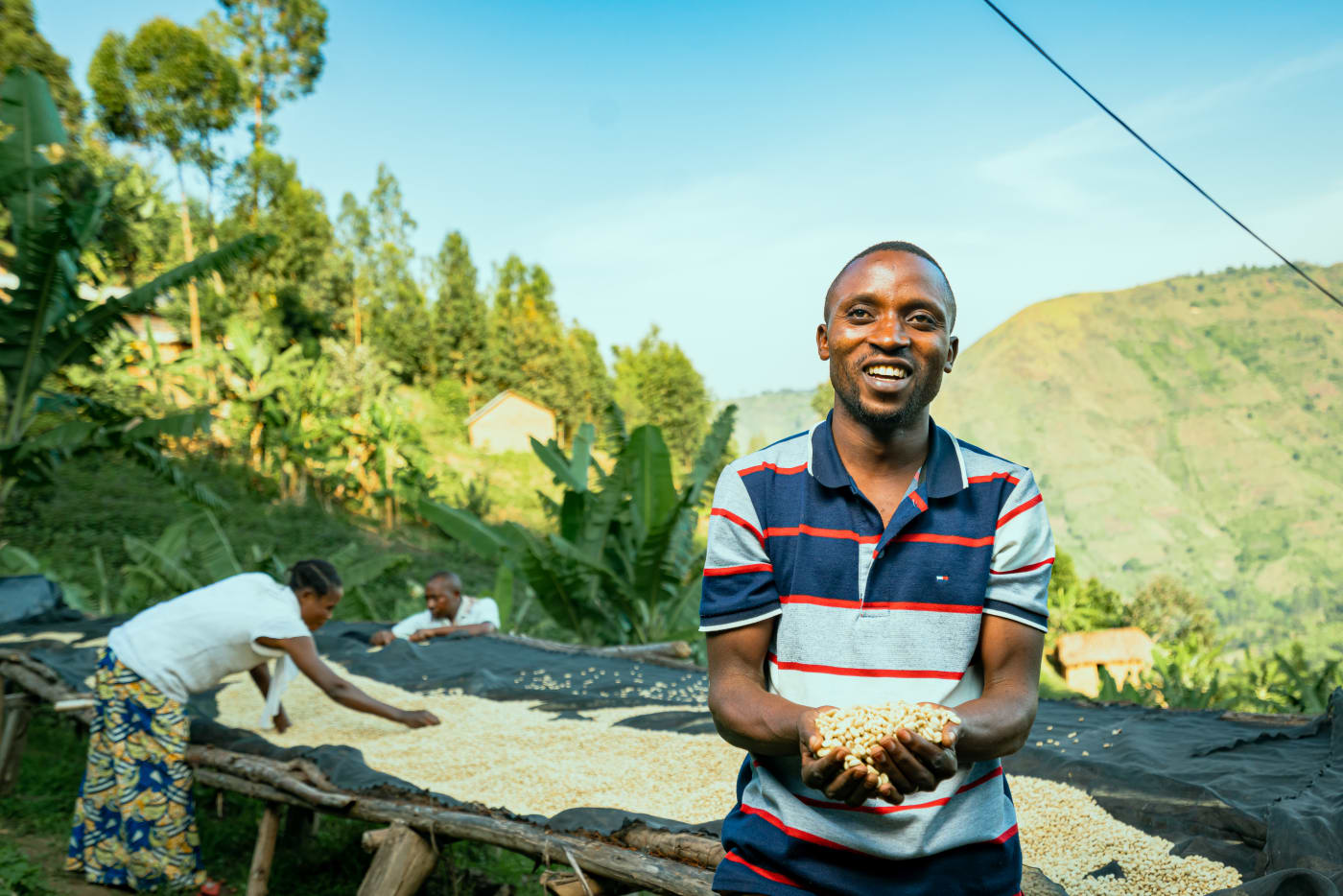What about the Pact roastery?
Our roastery is now carbon-neutral, we use 100% green energy, and we roast coffee within two to three days of deliveries to maximise roasting capacity and minimise energy use.
Our roasters reduce the greenhouse gases of every roast by up to 70% and save tens of thousands of pounds of CO2 every week.
Pact deliveries are done by Royal Mail, who have by far the lowest reported carbon footprint per parcel delivered in the UK.
What is Pact doing in coffee-producing countries?
It’s deeply saddening for lush rainforests to be stripped of their rich ecosystems. Often this is due to farmers having to make ends meet – and if we pay them a premium for their coffee, this won’t be necessary.
At Pact, we never encourage farmers to increase production volume beyond their means. We want them to scale up in a safe, sustainable way that will future proof their career.
That’s why we finance local agronomists to work with farmers and help them to increase speciality coffee yields on areas they’re already farming.
We also work with some fantastic farms who are reaching great heights with their conservation and reforestation work. For example, Zaroca, where Gilberto Basilio has replenished land which was formerly stripped for sugar cane.
There’s also a new variety of Arabica coffee, called Cenicafé 1, that was bred to be resistant to a number of different diseases, including the very troublesome leaf rust.
As temperatures increase, so does the risk of disease – and this means Cenicafé 1 is a serious plus for the future of Colombian coffee in the face of warmer temperatures.
Cenicafé 1 took no less than 20 years to create, and we were proud to launch it as a world exclusive.










